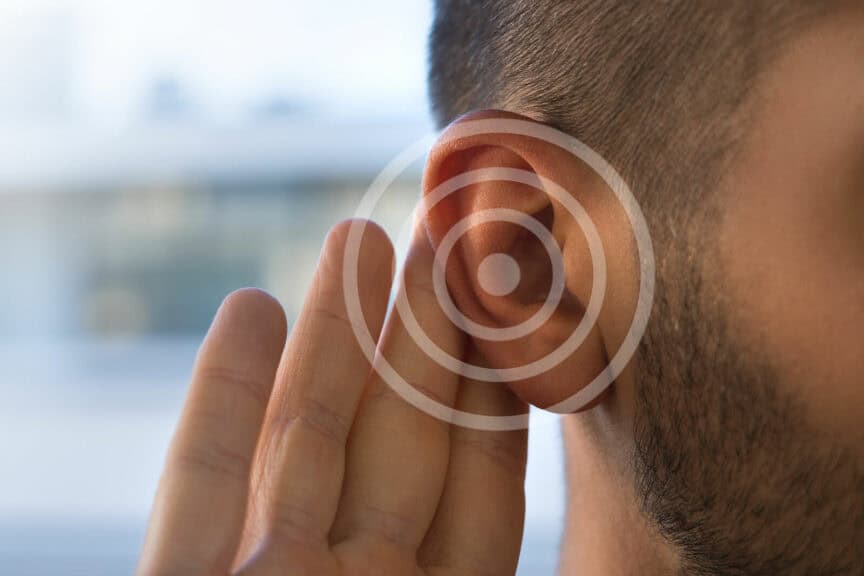For individuals living with tinnitus, the arrival of summer can bring more than just warm weather and time in the sun. The season is often accompanied by increased outdoor activities, more noise exposure, and changes in routine. These can all impact tinnitus symptoms.
However, with proactive management strategies, it’s possible to enjoy the summer months while minimizing the impact of tinnitus. Here are some practical tips and techniques to help you effectively manage tinnitus and make the most of the summer season.
Understanding Tinnitus and Its Triggers
Tinnitus is a condition characterized by the perception of ringing, buzzing, or other sounds in the ears in the absence of external stimuli. This means that only you can hear this sound. Various factors, including stress, exposure to loud noises, and weather changes, can exacerbate tinnitus symptoms.
During the summer, common triggers such as increased noise levels from outdoor events, concerts, or recreational activities can contribute to a rise in tinnitus discomfort for some individuals. You may have to try some new strategies to manage tinnitus during the summer.
Strategies for Managing Tinnitus in the Summer
Here are some tips for tinnitus relief:
- Noise Protection: When heading to outdoor activities such as concerts, festivals, or sporting events, protect your ears from excessive noise exposure by using earplugs or noise-canceling headphones. These devices can help reduce the impact of loud environments and mitigate the risk of tinnitus flare-ups.
- Stress Management: Relaxation techniques and stress-reducing activities can help alleviate tinnitus symptoms. Mindfulness meditation, yoga, deep breathing exercises, and other forms of relaxation can counteract the impact of stress, which is known to exacerbate tinnitus.
- Healthy Sleep Habits: Try to maintain a consistent sleep schedule to manage tinnitus during the summer. Longer daylight hours and changes in routine can disrupt sleep patterns, potentially worsening tinnitus symptoms. When you establish a calming bedtime routine and create a comfortable sleep environment, you can promote better sleep quality and reduce tinnitus-related disturbances.
- Stay Hydrated: Dehydration can worsen tinnitus symptoms. As temperatures rise during the summer, it’s important to stay hydrated by drinking an adequate amount of water throughout the day. Proper hydration supports overall health and can help minimize the impact of tinnitus.
- Limiting Caffeine and Alcohol Intake: Both caffeine and alcohol can potentially exacerbate tinnitus symptoms. During the summer months when these beverages are often consumed more frequently at social gatherings, consider moderating your intake to help manage your tinnitus.
- Maintain Physical Activity: Regular physical activity can contribute to overall well-being and can help manage stress, which is a known aggravator of tinnitus. Engage in outdoor exercises such as walking, swimming, or cycling to promote physical and mental health. Staying active can potentially lead to a reduction in tinnitus-related discomfort.
- Seek Shade and Wear Sun Protection: Prolonged exposure to direct sunlight and heat can contribute to stress and fatigue, both of which can affect tinnitus symptoms. Seek shade when outdoors, wear protective clothing, and apply sunscreen to shield yourself from excessive sun exposure.
- Tinnitus Support: Connect with support groups or online forums to share experiences, advice, and coping strategies with others who also live with tinnitus. Seeking this additional support can provide valuable insights and a sense of community, helping you navigate the challenges of managing tinnitus during the summer months.
Taking Care of Your Hearing Health
Amidst the summer activities, it’s important to prioritize your hearing health. By being proactive in protecting your ears from loud noises and other potential hazards, you can help minimize the risk of exacerbating tinnitus and prevent additional hearing-related challenges.
Consider scheduling a hearing assessment with a qualified hearing health specialist to monitor your hearing health and address any concerns or changes in your tinnitus symptoms. You can also discuss personalized strategies and techniques for managing tinnitus with your healthcare provider to ensure that you have a comprehensive plan tailored to your specific needs.
Visit Us for Tinnitus Treatment Options
The summer months offer many opportunities for enjoyment and relaxation, and individuals with tinnitus can also enjoy the season’s activities while effectively managing their symptoms. By incorporating practical strategies for noise protection, stress management, and overall well-being, you can navigate the summer with greater comfort and minimal disruption to daily life. For more support managing tinnitus and to explore treatment options, visit us today.

